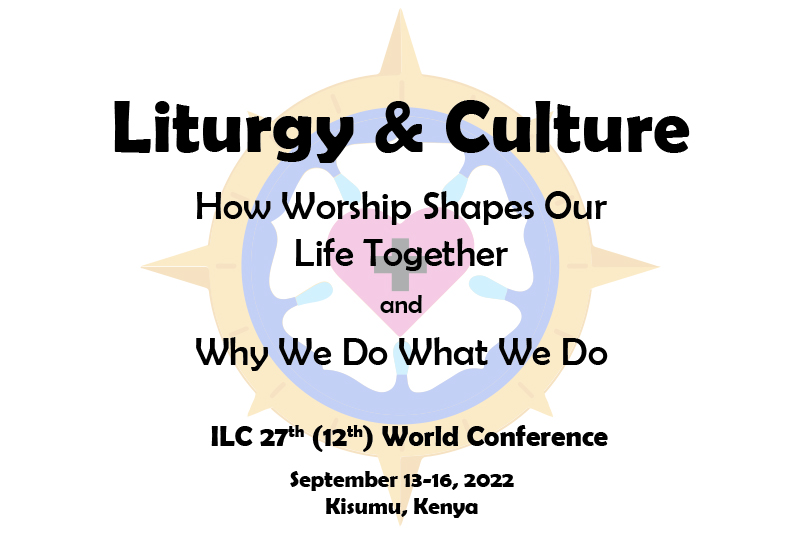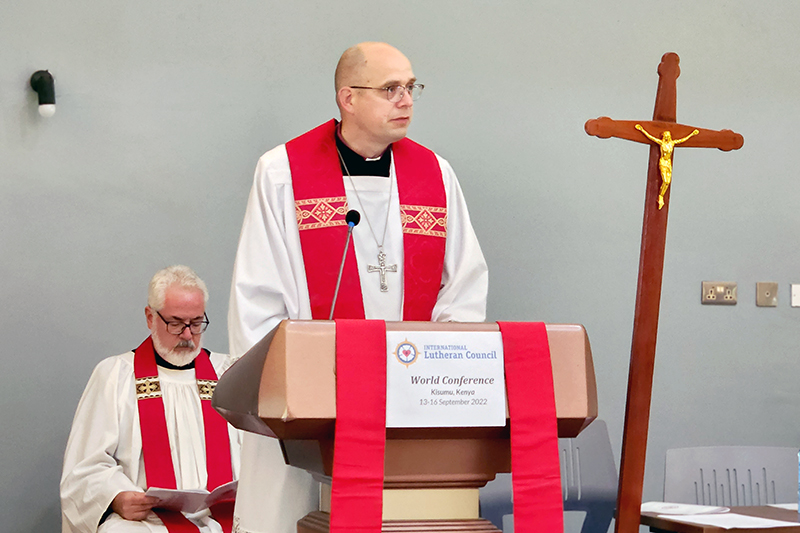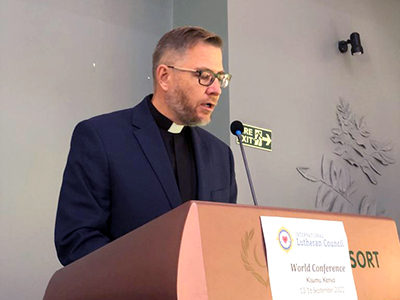
ONLINE – The International Lutheran Council (ILC)’s Statement on Internet Communion, which was adopted during the ILC’s 2022 World Conference in Kenya, has now been released online.
“The International Lutheran Council expresses deep concern over the practice of internet communion,” the statement declares. “We encourage our member bodies to take up this matter and reject this practice.”
The full Statement on Internet Communion is available to download here.
The Statement on Internet Communion was unanimously adopted in principle during the ILC’s 2022 World Conference in Kenya, with additional direction given to the board to prepare a final version for publication in December. ILC statements do not supplant the autonomy of member churches but represent important guidance and encouragement to member churches when discussing theological issues—in this case, the practice of internet communion.
The International Lutheran Council is also releasing Summary Reflections on Liturgy and Culture, a summary-response to presentations made during the ILC’s 2022 World Conference. The theme of the conference was “Liturgy and Culture: How Worship Shapes our Life Together and Why We Do What We Do.”
The Summary Reflections document is available to download here.
———————


